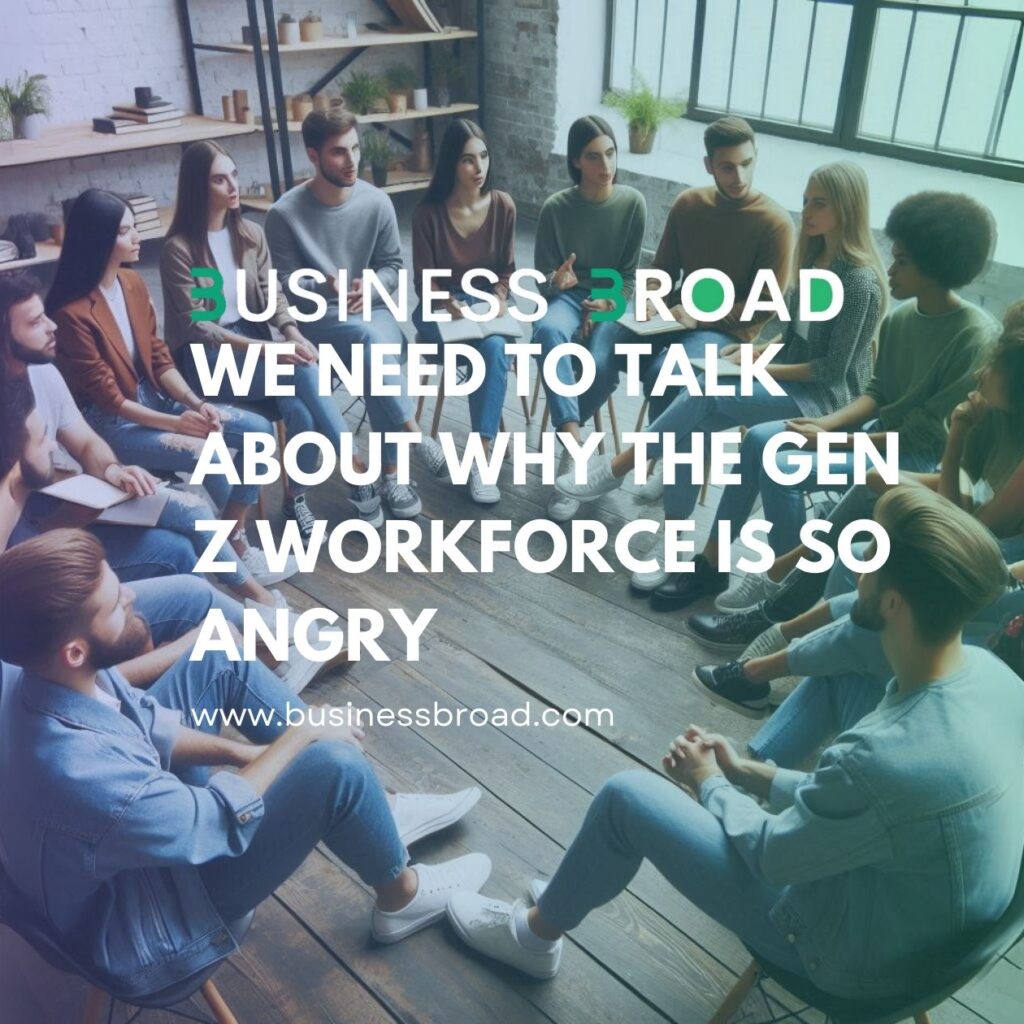In recent years, the Gen Z workforce has been making headlines, often portrayed as a generation filled with frustration and discontent. But what is driving this anger, and how can businesses address it? Let’s delve into the factors contributing to this phenomenon and explore potential solutions.

Understanding Gen Z’s Frustration
- Economic Uncertainty: Gen Z has grown up in a world marked by economic instability. Many witnessed their parents struggle during the 2008 financial crisis and are now facing their own challenges with student debt and a competitive job market. This economic pressure has led to a sense of insecurity and frustration.
- Workplace Expectations: Unlike previous generations, Gen Z places a high value on work-life balance, mental health, and meaningful work. When these expectations are not met, it can lead to dissatisfaction and anger. They are not afraid to voice their concerns and demand changes.
- Technological Disruption: Growing up with technology, Gen Z is highly adept at using digital tools. However, this also means they are acutely aware of the rapid changes and disruptions in the job market due to automation and AI. This uncertainty about the future can contribute to their frustration.
- Social and Environmental Concerns: Gen Z is deeply concerned about social justice, climate change, and corporate responsibility. They expect their employers to take a stand on these issues and contribute positively to society. When companies fall short, it can lead to disillusionment and anger.
Addressing the Anger
- Open Communication: Employers need to foster an environment of open and honest communication. Regular feedback sessions and town hall meetings can help address concerns and build trust.
- Mental Health Support: Providing mental health resources and promoting a culture of well-being can go a long way in addressing Gen Z’s concerns. This includes offering flexible work arrangements and encouraging a healthy work-life balance.
- Career Development: Gen Z values opportunities for growth and development. Employers should invest in training programs, mentorship, and clear career progression paths to keep them engaged and motivated.
- Corporate Responsibility: Companies need to align their values with those of their Gen Z employees. This means taking tangible actions on social and environmental issues and being transparent about their efforts.
Conclusion
The anger and frustration seen in the Gen Z workforce are not without reason. By understanding their unique challenges and expectations, employers can create a more supportive and engaging work environment. Addressing these issues head-on will not only help in retaining Gen Z talent but also in building a more resilient and forward-thinking organization.




